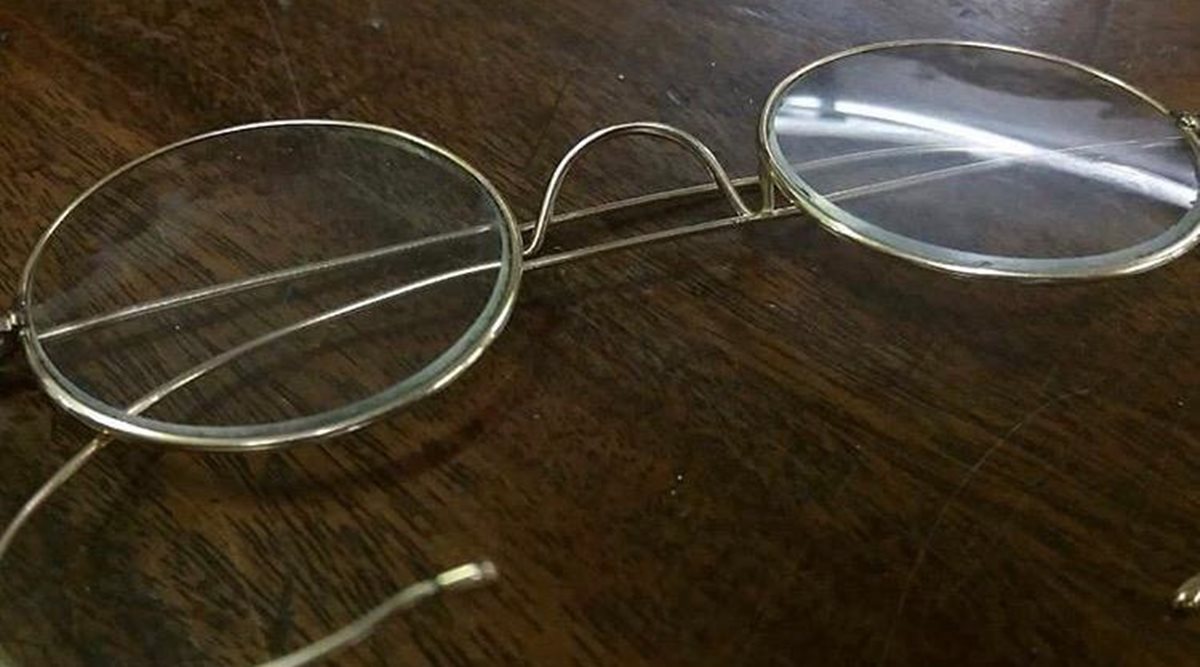The staff at East Bristol Auctions have said that the glasses had been dropped in their letter box by a man who claimed that they were originally gifted to his uncle by Gandhi himself.

A pair of gold-rimmed spectacles believed to be once worn by Mahatma Gandhi were sold in an auction for £260,000 (over Rs 2.5 crore) in the UK on Friday, four weeks after they were first discovered sticking out of a letter box outside the auction house, BBC reported.
The iconic spectacles were sold to an American collector within six minutes of bidding at an auction in Bristol Friday. The staff at East Bristol Auctions have said that the glasses had been dropped in their letter box by a man who claimed that they were originally gifted to his uncle by Gandhi himself, according to an AFP report.
“A colleague of mine picked them up, ripped open the envelope and found a brief note inside saying, ‘These glasses belonged to Gandhi, give me a call,” Andrew Stowe, one of the auctioneers, told Sky News. “I read the note, carried on with the morning duties, and then around lunchtime I thought, ‘Well let’s give this gentleman a call, let’s see what the story is.”
The spectacles were passed on from generation to generation within the seller’s family, after his uncle received them as a gift while visiting South Africa in the 1920s, BBC reported. Gandhi was known for giving away his personal items to people in need or to those who helped him in some way.
The auctioneers had originally estimated that the glasses would sell for about £15,000 (over Rs 14 lakh). They finally sold for almost 20 times of the estimated price, marking the auction house’s biggest sale ever.
“These glasses have been lying in a drawer for the best part of fifty years. The vendor literally told me to throw them away if they were ‘no good’. Now he gets a life-changing sum of money,” Stowe told BBC.
In 2009, liquor baron Vijay Mallya bought several of Mahatma Gandhi’s personal belongings worth $1.8 million (around Rs 9.3 crore) at an auction in New York. The items included — a pair of glasses, a pair of worn leather sandals, a pocket watch, and a simple brass bowl and plate.
In an attempt to stall the auction, the Indian government had earlier approached the US Justice Department to enforce an interim injunction passed by the Delhi High Court. However, the auctioneer refused to withdraw the items. Finally, Mallya purchased the memorabilia, claiming that he was “bidding for the country”.
Gandhi became synonymous with the iconic round-rimmed Windsor-style glasses, common during the period when he was studying law in England in the late 1800s and 1900s.
While initially used infrequently, the glasses became a regular feature during the national movement and Gandhi’s civil disobedience protests in India.
No comments:
Post a Comment